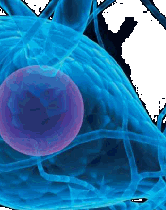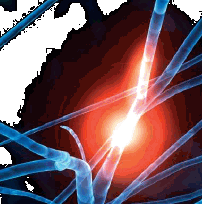
"Transforming Learning
and the Transmission
of Knowledge"

|
Editorial
- 31 October 2010 |
 |
"Transforming Learning
|
 |
March this year saw the only meeting during 2010 of the Prime Minister's Science, Engineering and Innovation Council (PMSEIC). According to the Chief Scientist's Annual Review 09/10: "The Prime Minister, The Hon Kevin Rudd MP, several Ministers and leaders of science organisations from around Australia met for the 21st meeting of PMSEIC. The primary focus of discussion was the [66-page] expert report, Transforming Learning and the Transmission of Knowledge. The Council agreed that a budget proposal be developed for Science of Learning Centres. This report was the first to be developed through the new PMSEIC foresight process, which identified learning as a long-term risk and opportunity for the nation."
The report lists six "key recommendations"
The Expert Working
Group recommends the establishment of a Science of Learning Program,
delivered through a number of interdisciplinary, inter-professional Science
of Learning Centres.
The Expert Working
Group recommends that Australia ensures that all students in remote
locations have access to full-time, trained and qualified teachers and
quality learning environments.
The Expert Working
Group recommends the introduction of a campaign that embeds the excitement
of learning, and the value and benefits of acquiring and sharing knowledge,
as integral parts of a modern Australian identity.
The Expert Working
Group recommends the introduction of a campaign to enhance the status and
esteem society holds for its teachers. In addition, it is recommended that
remuneration and support for their continuous professional development in
both pedagogy and discipline studies would reflect the central importance of
teaching in learning and learning in teaching.
The Expert Working
Group recommends a rigorous evaluation of the many widespread applications
of digital technology currently employed in learning settings.
The Expert Working Group recommends that additional teacher professional development programs be implemented in order to develop the understanding and skills required for the more effective pedagogical integration of digital forms of learning into curricula planning and presentation for teachers, other learning practitioners and students.
With the tabling of the report the Chief Scientist, Professor Penny Sackett said: "The Centres would have a transformational impact on learning by advancing the scientific understanding of effective learning techniques; generating knowledge to inform education policy and practice; and by testing innovative approaches in real world environments to maximise learning outcomes." She went on to say: "It is expected that the research findings from these Centres could lead to improvements in equity, educational practice and practitioner development. All of which, should narrow the achievement gap and maximise Australia’s economic productivity, and by adopting the recommendation from the report to establish Science of Learning Centres, we can deliver a society of effective life-long learners who have the ability to engage in the rapidly developing knowledge society that is the global future."
To date neither the report nor its recommendations has drawn the public attention of the then Prime Minister Kevin Rudd, his Minister of Education, now Prime Minister, Julia Gillard, the Minister for Science and Research, Senator Kim Carr, the Leader of the Opposition, Tony Abbott, or the leader of the Greens, Senator Bob Brown. It is fair to assume that the vast majority of our parliamentarians are quite unaware of the report and its recommendations.
Interestingly, within a week of the promulgation of Transforming Learning and the Transmission of Knowledge US President Barack Obama nominated physics Nobelist Carl Wieman to be Associate Director of Science in the Office of Science and Technology Policy. The nomination was confirmed unanimously by the US Senate on September 16.
While Professor Wieman shared the Nobel Prize for his production in 1995 of the first true Bose–Einstein condensate, it is his effort over more than a decade to understand how students learn that is the reason for his being asked to join John Holdren at OSTP.
First off, Professor Wieman's views of how students become academic champions -- the same way athletes excel on the field: through proper training that features repetition of the needed skills, incentives, and good coaching.
In an extensive interview with the journal Science he made the following points -- he would have been a good advocate for Professor Sackett to have had present at the March 18 PMSEIC meeting.
My own synthesis of a whole bunch of research is that you have to approach [science education]as a brain-development process. You look at brain images and you have people learn something, and you see the brain is different afterwards. It's a changing of the brain, because of having to practice hard. So it's very analogous to a muscle. ... You also have to think about motivation. You're not going to work hard to do something if you don't see a reason to do it. ...Then you have to think of the right task to give students practice about thinking the right way ... and then feedback on what they did right and wrong... It's very much like coaching. A good coach knows what it takes to perform at a high level and what drills are most effective. They are also good at motivating athletes and providing them with lots of feedback. It applies at all levels.
When asked about the PCAST recommendation to provide bonuses for master STEM teachers and the creation of 1000 STEM-focused schools?
I absolutely agree with their recommendation on the need for better coordination across STEM agencies. And we're already working to do that. Their recommendation to improve teacher training cites the importance of strong content knowledge. That's totally consistent with what I know about being a good coach. When you get into the area of master teachers, however, that's more of a process issue. If you don't understand the process of becoming a master teacher, then you can't do the job. So thinking about how to inject expertise into the equation is very important.
And then:
If you have teachers who are more skilled, who understand better how students learn and can demonstrate that expertise in the classroom, you'll have fewer disciplinary problems, and more motivated students, and better outcomes. And then working conditions will improve, too. I think that education is more similar to a complicated physics experiment than people think. An experiment has an infinite number of failure modes, and if you focus on just one piece, it's not going to be successful. [And as to the question] "Why isn't [undergraduate] science instruction better?" A big reason is that the research we've been talking about is very recent. And when you've been doing something the same way for hundreds of years, it takes a while to be convinced that you need to change. There's also the problem of incentives. We don't have good metrics for measuring how to improve learning.
Why his interest in the hows of science teaching?
It began when I started to see common patterns among my graduate students in the way they were learning to become scientists. So I figured that there must be some underlying principles. Then I started dabbling in my own experiments. For several years I maintained two parallel research groups, one in atomic physics and one in physics education. Then I decided that there were incredible opportunities to make a difference in our current state of knowledge about how people learn. Of course, by then I also had the advantage of being a Nobel Prize winner.
And finally a quiet shot about the STEM acronyn:
I don't understand what the T is, to be honest. But it's probably better than any of the alternatives.
As long as Australia remains incapable of instituting a multi-partisan generational program for educational improvement, starting with providing incentives and the thorough teaching of the primary and secondary school teachers so that they provide their pupils with enthusiasm built on a foundation of knowledge and imagination, matters will continue to degrade. However, on present form it would appear more probable there being a resolution of the Israeli - Palestinian dispute.
Alex Reisner
The Funneled Web